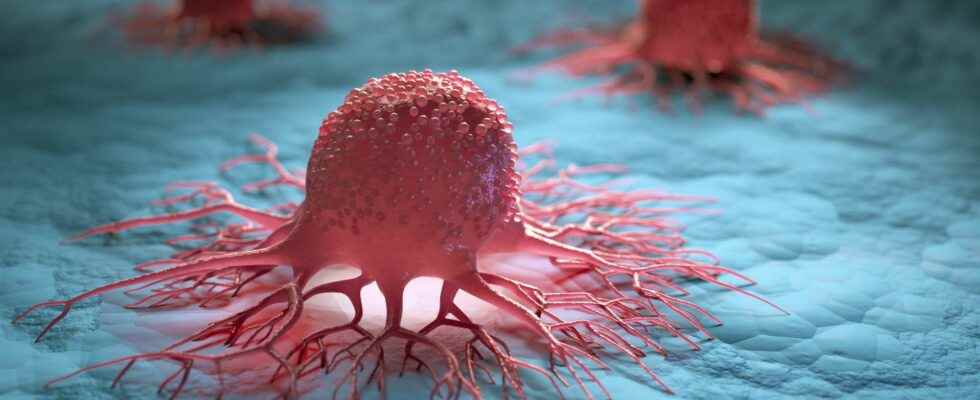among all rectal cancerthem adenocarcinomas are the most frequent. To cure them, oncologists usually offer surgery to remove the cancerous area, followed by a chemotherapy. But’immunotherapy could replace this protocol burdensome for patients. In effect, a small clinical trial made at Memorial Sloane Kettering Cancer Center in New York gave impressive results: 100% of patients were in remissionwithout the need for surgery or chemotherapy, after treatment with a antibody therapy, dostarlimab.
100% remission
Tested on a small cohort of twelve patients suffering from phase II or III rectal adenocarcinoma, dostarlimab made it possible to eradicate purely and simply the tumor after one injection every three weeks for six months. In 100% of patients, the tumor was undetectable at to scanMRI,endoscopy and in biopsies rectal. They did not need surgery or chemotherapy to complete the action of dostarlimab. No patient had a relapse during the follow-up period, which lasted from 6 to 25 months. Dostarlimab did not cause serious side effects in most patients, only rashes, fatigue, nausea, and pruritus. Only one person developed a non-life-threatening thyroid problem.
Dostarlimab also offers hope for people with syndrome of Lynch – eight among the twelve participants in theclinical test. This hereditary disease drastically increases the risk of developing cancer colorectal disease throughout life, and is associated with poorer outcomes after surgery or cancer chemotherapy. L’immunotherapy could be a promising tool to treat patients affected by Lynch syndrome.
Lasting results?
This approach only works on cancers of the rectum so-called deficient mismatch systemDNA, which represent between 10 to 15% of rectal adenocarcinomas diagnosed each year. Dostarlimab is an antibody that prevents recognition of the PD-1 receptor, located on the lymphocytes T, with sound ligand PDL-1, located on cancer cells. The interaction of the receptor with its ligand paralyzes the immune response – instead of destroying the abnormal cell, the T lymphocyte spares it. By mechanically blocking this interaction, dostarlimab allows T cells to destroy the abnormal cell.
Impressive results that will need to be replicated in future independent clinical trials involving more participants. The question of the sustainability results will also be crucial; if the participants have been in remission for several months, there is nothing to say to date that they will still be in several years.
Interested in what you just read?
